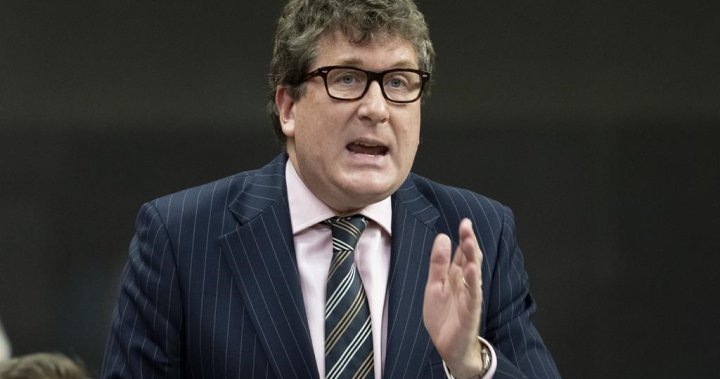The political landscape in Canada is poised for potential upheaval in the early months of 2025, with Conservative MP Jonathan Williamson initiating a process that could lead to a no-confidence vote and a snap election. Williamson’s strategy involves introducing a non-confidence motion at a meeting of the Public Accounts Committee scheduled for January 7th. If the committee approves the motion, it will be forwarded to the House of Commons, where it could be debated and voted upon as early as January 30th. A successful vote against the government would trigger a federal election, adding another layer of uncertainty to the already dynamic Canadian political scene. This latest maneuver by the Conservatives follows three unsuccessful no-confidence motions they brought forward in the fall of 2024.
The timing of Williamson’s initiative is significant, coming on the heels of Finance Minister Chrystia Freeland’s unexpected resignation from cabinet. This resignation has further destabilized the ruling Liberal government and created an opening for opposition parties to challenge its legitimacy. While the specific reasons behind Freeland’s resignation have not been fully disclosed, it has undoubtedly weakened the government’s position and emboldened its critics. The Conservatives are seeking to capitalize on this vulnerability and portray the government as being in disarray, hoping to convince Canadians that a change in leadership is needed.
Adding another dimension to the political intrigue is the shifting stance of NDP Leader Jagmeet Singh. Previously, Singh and the NDP had supported the Liberal government on confidence votes, ensuring its survival. However, in the wake of Freeland’s departure, Singh has signaled a change in tack, indicating a willingness to support a no-confidence motion. This new position from the NDP could be the deciding factor in determining the fate of the Trudeau government. If the NDP joins forces with the Conservatives, they would have the combined numbers needed to pass a no-confidence motion and force an election.
The potential for a snap election has injected a sense of urgency into Canadian politics. All parties are now recalibrating their strategies and preparing for the possibility of a campaign. The Liberals, weakened by Freeland’s resignation and facing a united opposition, will need to quickly consolidate their support and present a compelling case to voters as to why they deserve another mandate. The Conservatives, sensing an opportunity, will likely intensify their attacks on the government’s record and offer their own vision for the country’s future. The NDP, holding the balance of power, will play a crucial role in shaping the outcome of any election.
The political stakes are high, with the potential for significant shifts in the balance of power. A snap election would provide an opportunity for Canadians to weigh in on the performance of the Trudeau government and the alternative visions presented by the opposition parties. The outcome of such an election would have profound implications for the direction of the country, influencing policy decisions on a wide range of issues, from the economy and healthcare to climate change and social justice. The months ahead promise to be a period of intense political activity, with all eyes on the developments in Ottawa.
In summary, the Canadian political landscape is highly charged, with the potential for a no-confidence vote and a subsequent snap election looming large. The Conservatives, led by MP Jonathan Williamson, are actively pursuing a strategy to topple the Liberal government, while the NDP’s shift in position has added a new layer of complexity. The resignation of Finance Minister Chrystia Freeland has further destabilized the government and created an opening for the opposition. The coming weeks will be crucial in determining the future of Canadian politics, with the potential for a dramatic change in leadership and direction. The possibility of a snap election has injected a sense of urgency into the political discourse, and all parties are preparing for the possibility of a campaign. The outcome of any election would have significant implications for the country’s future.

